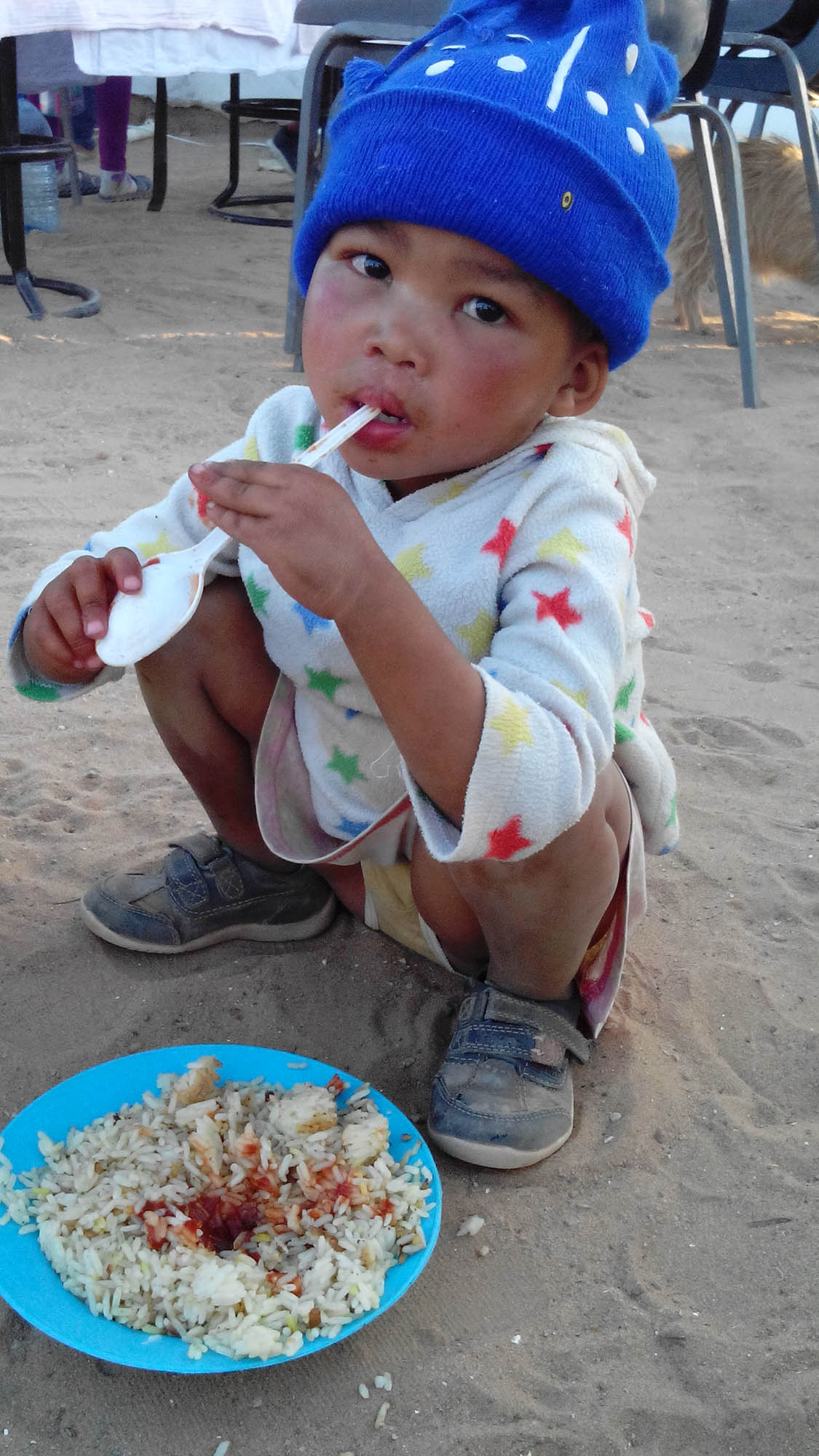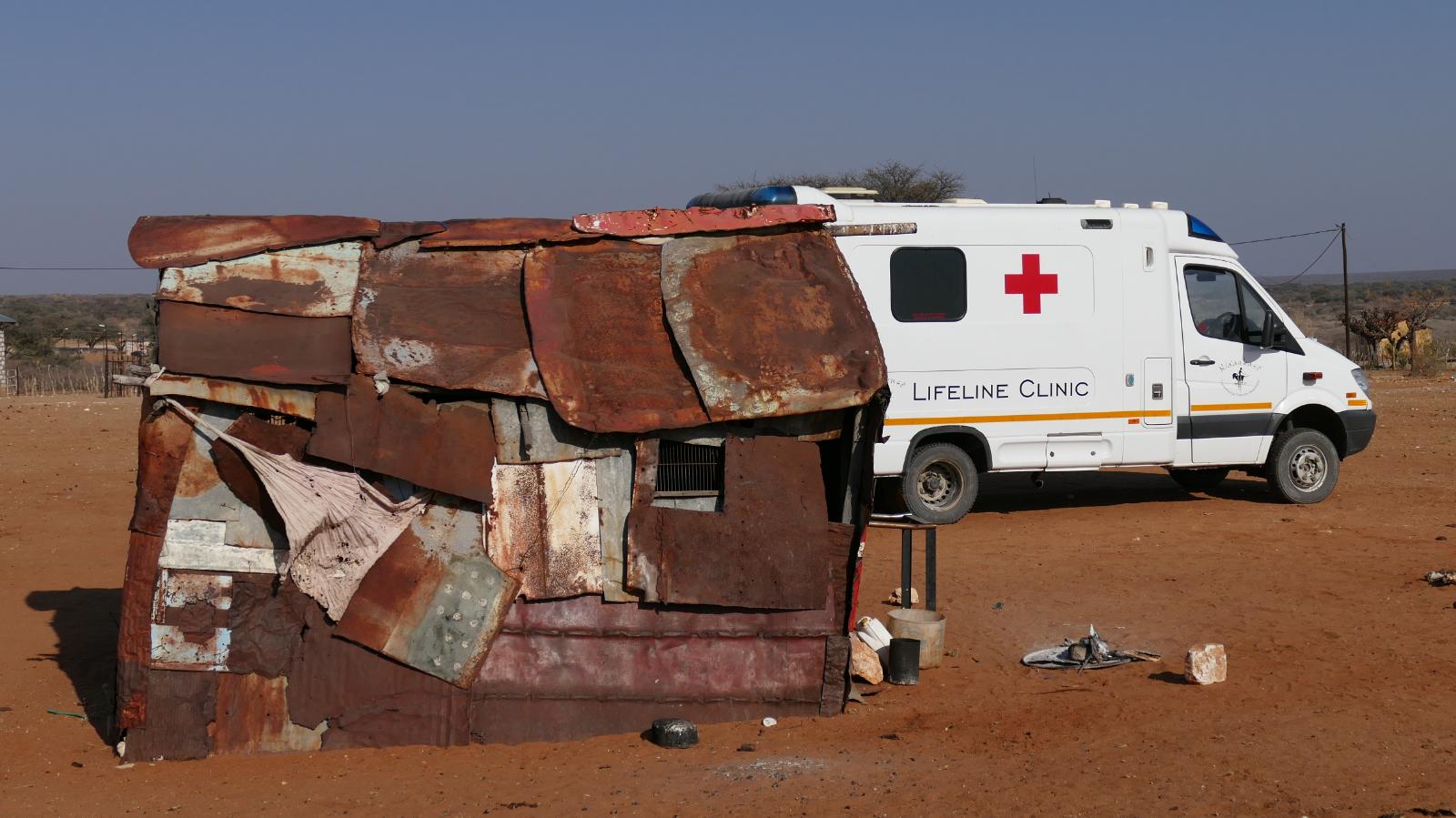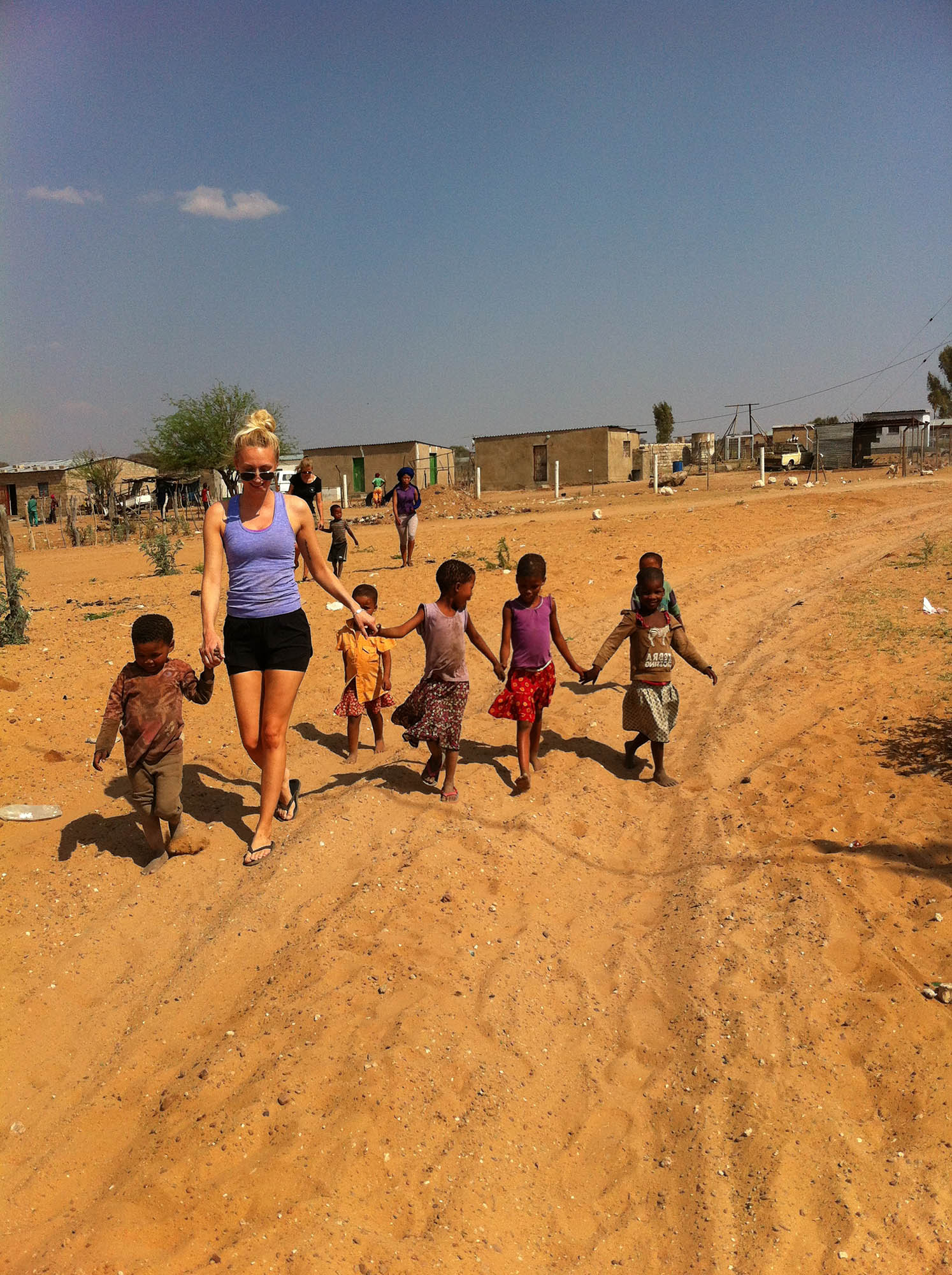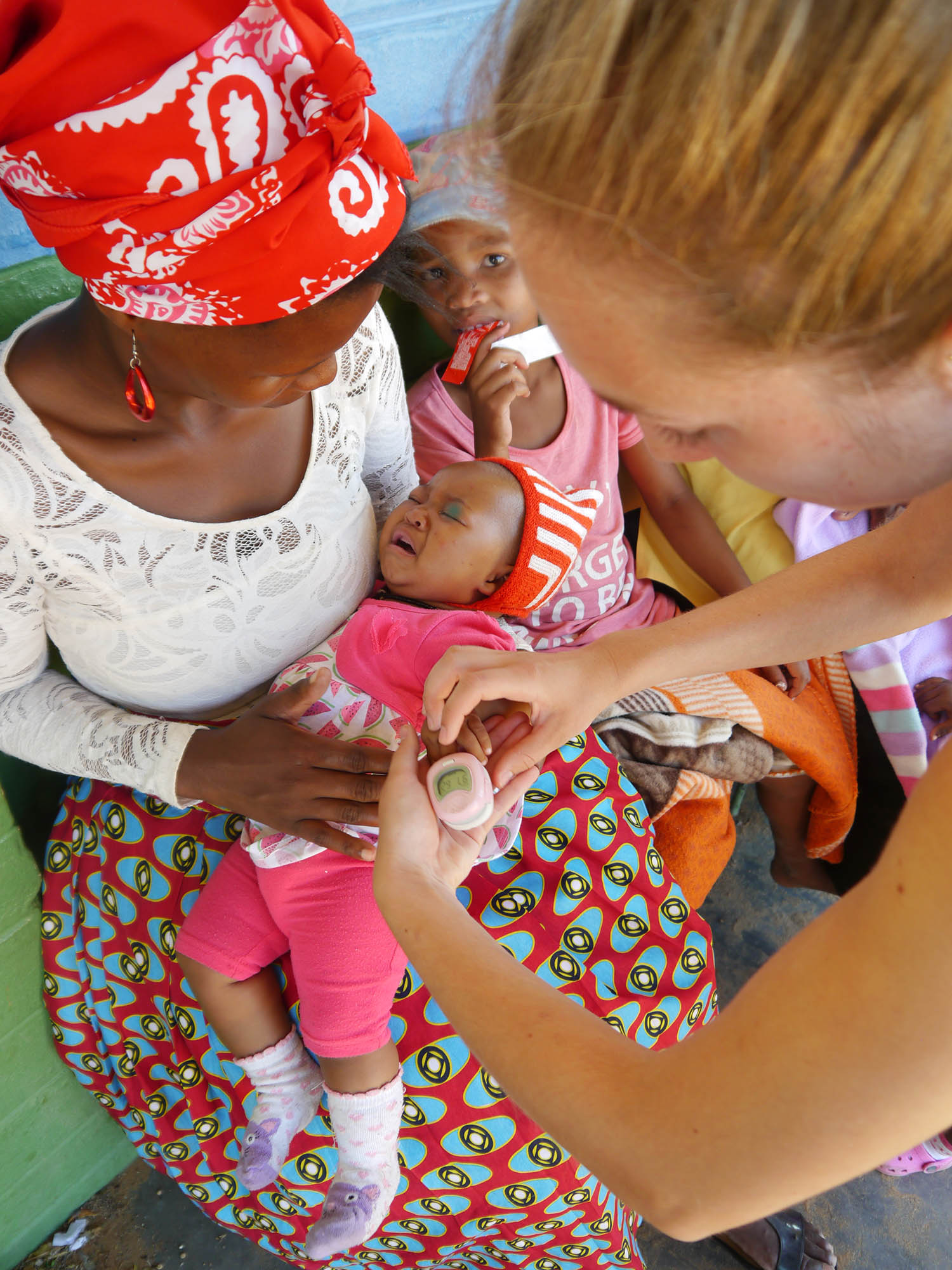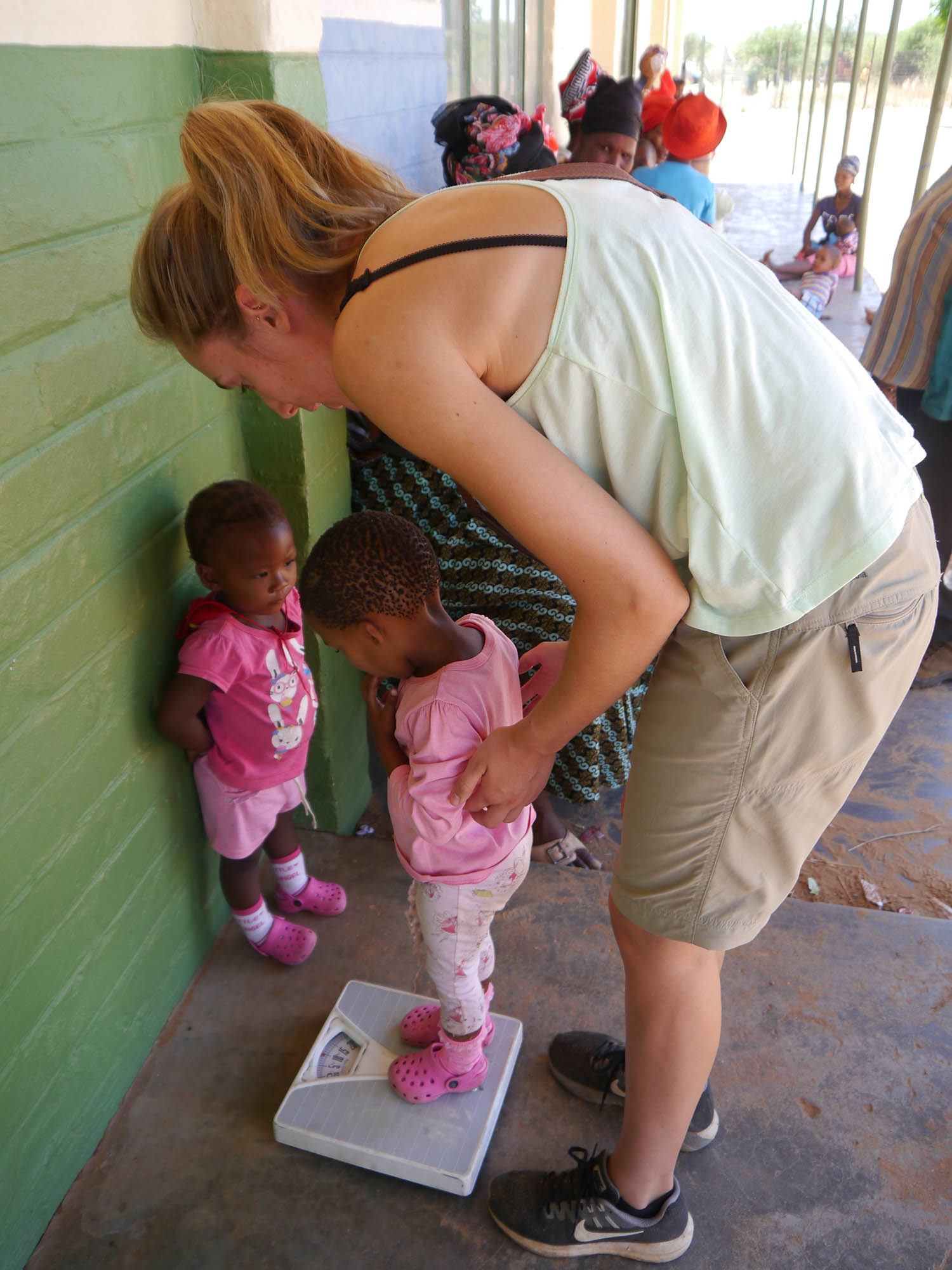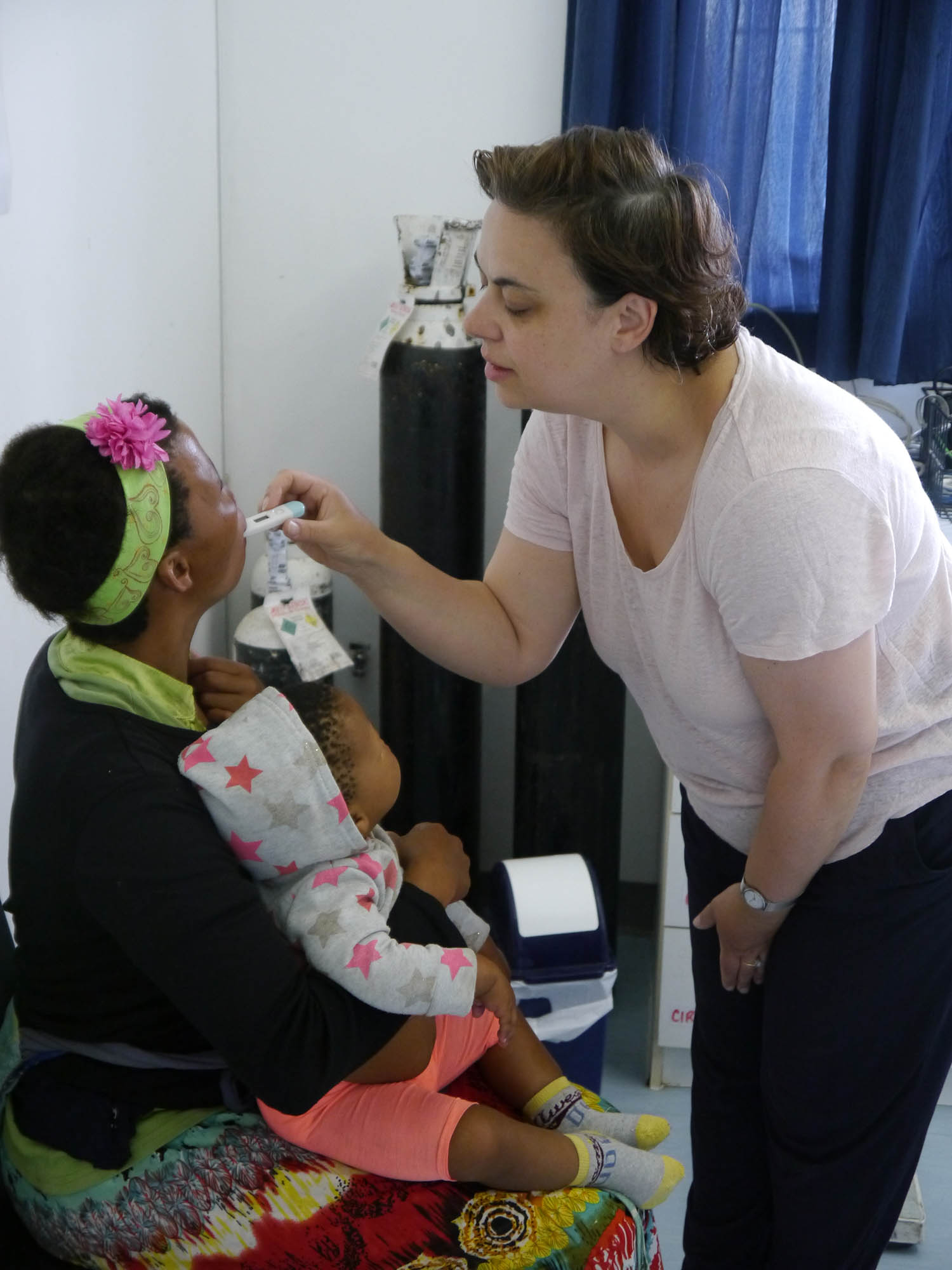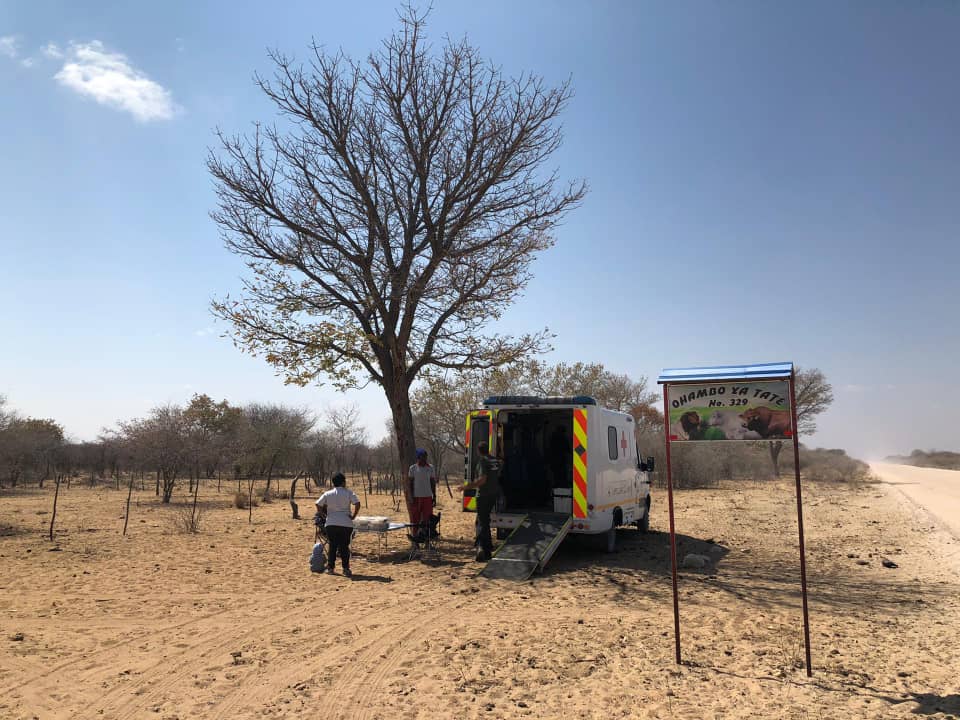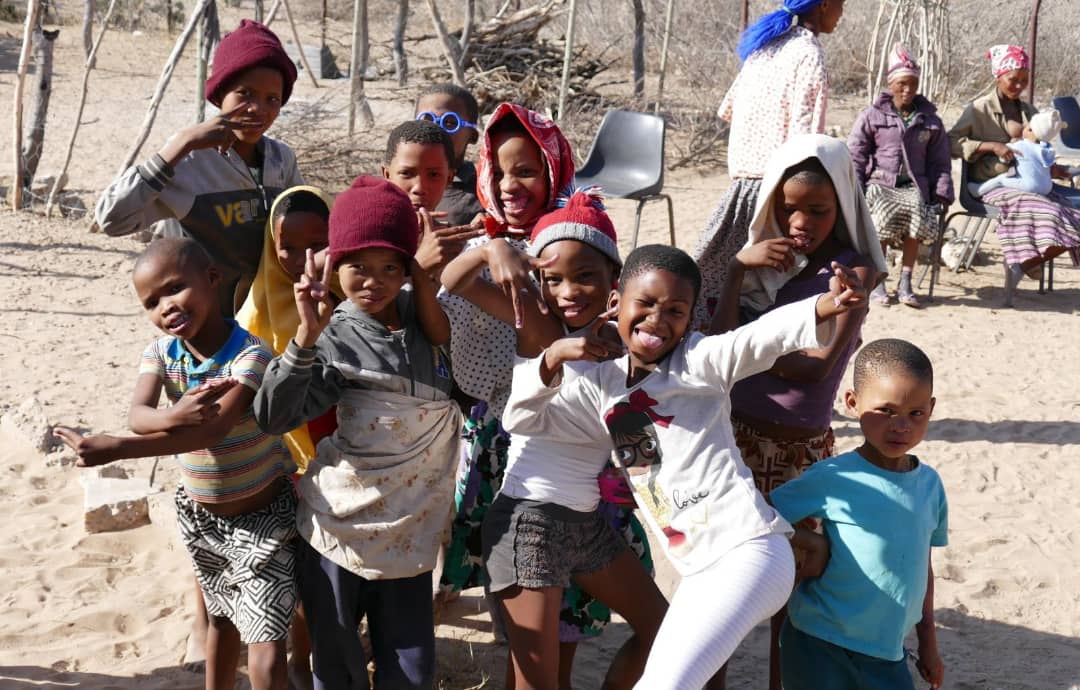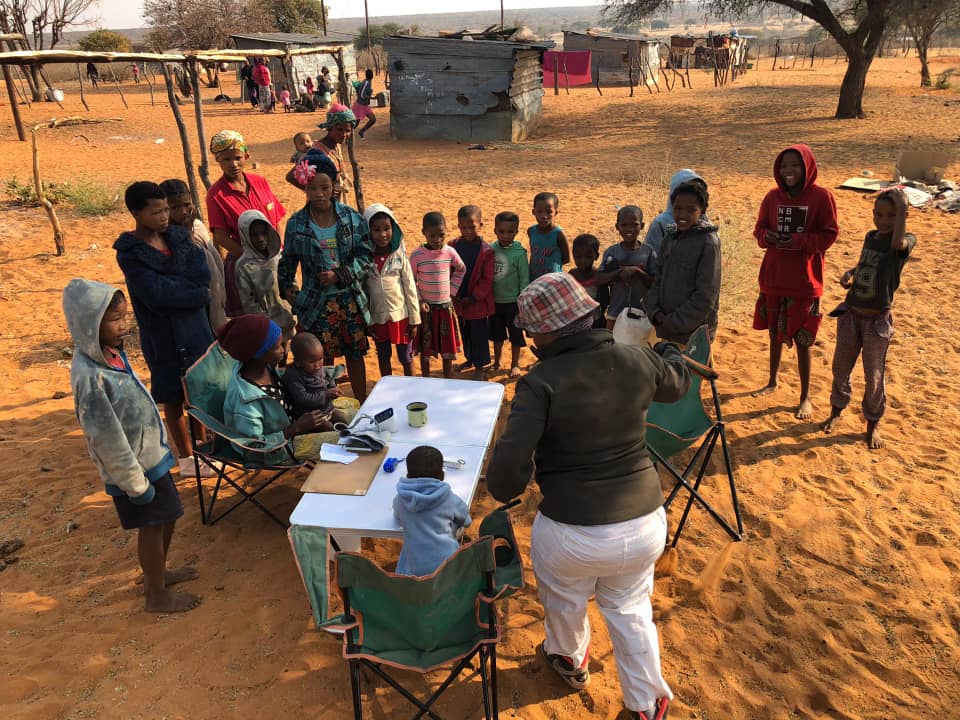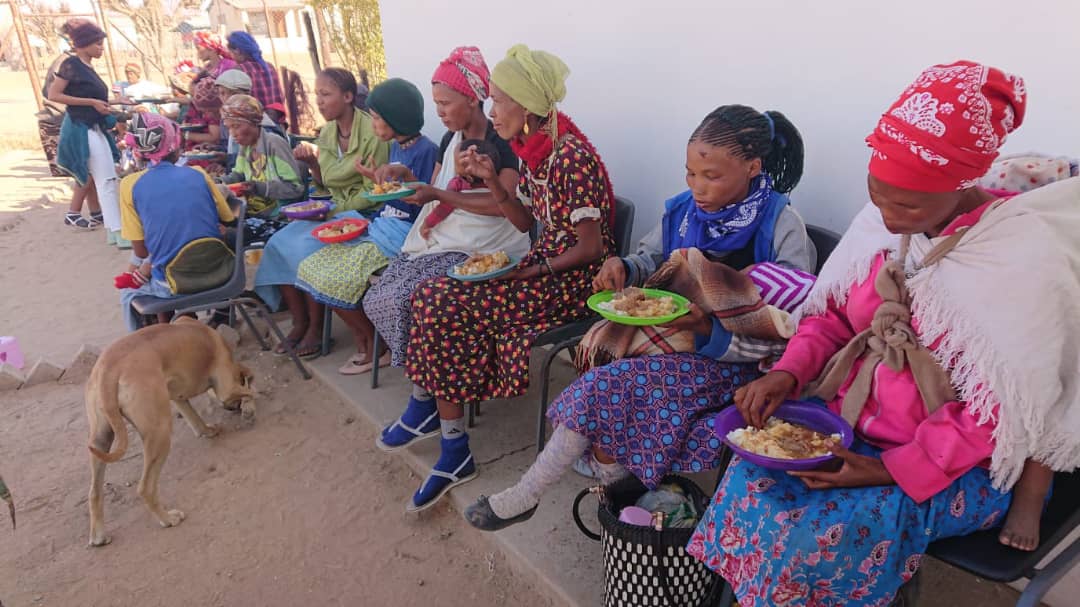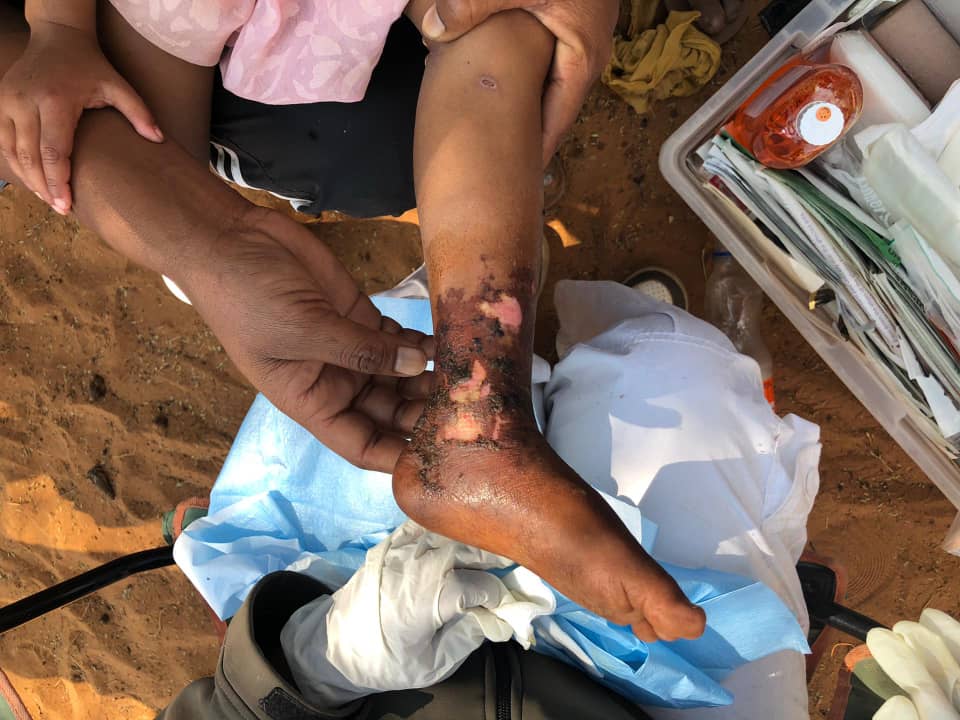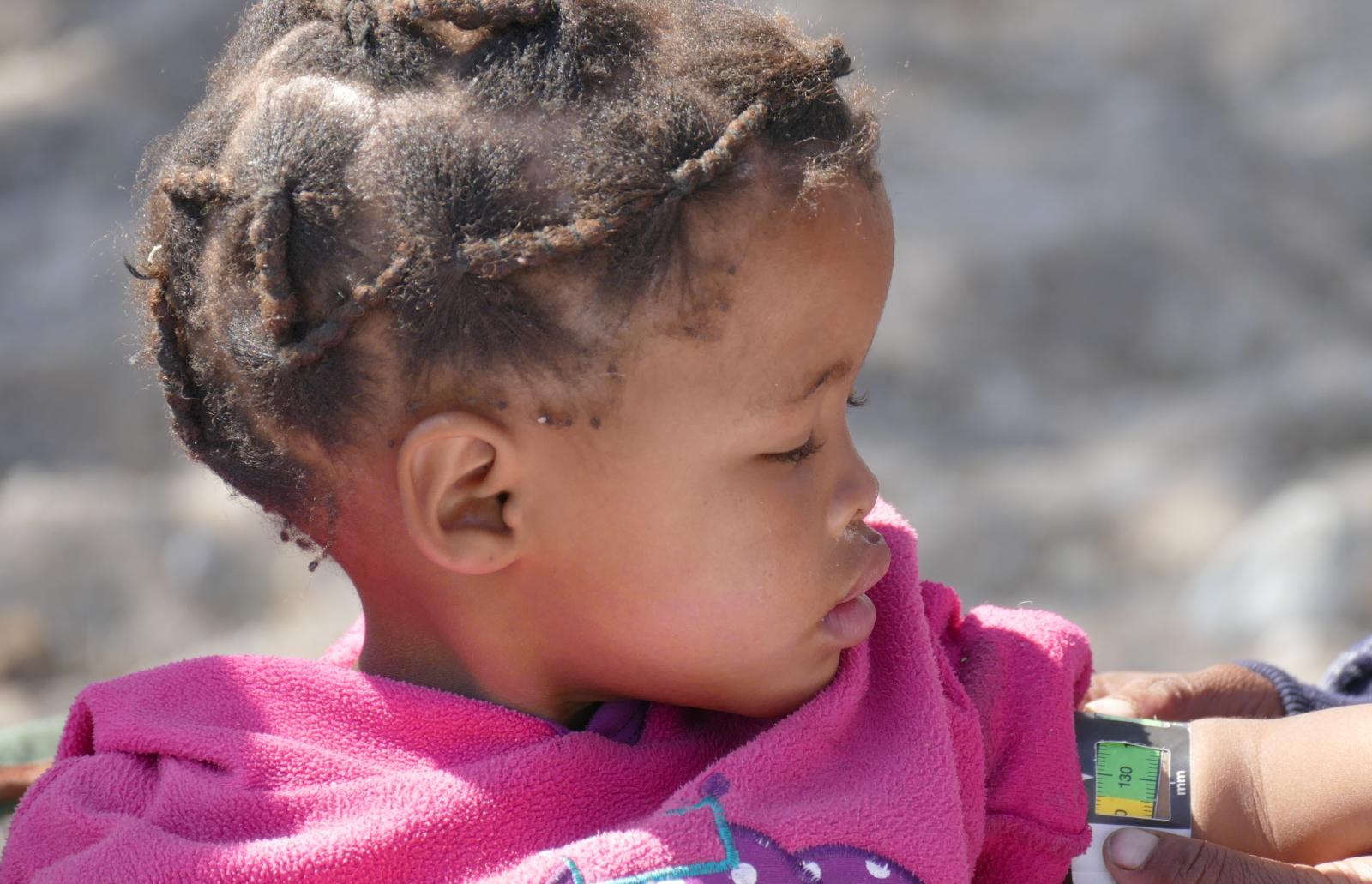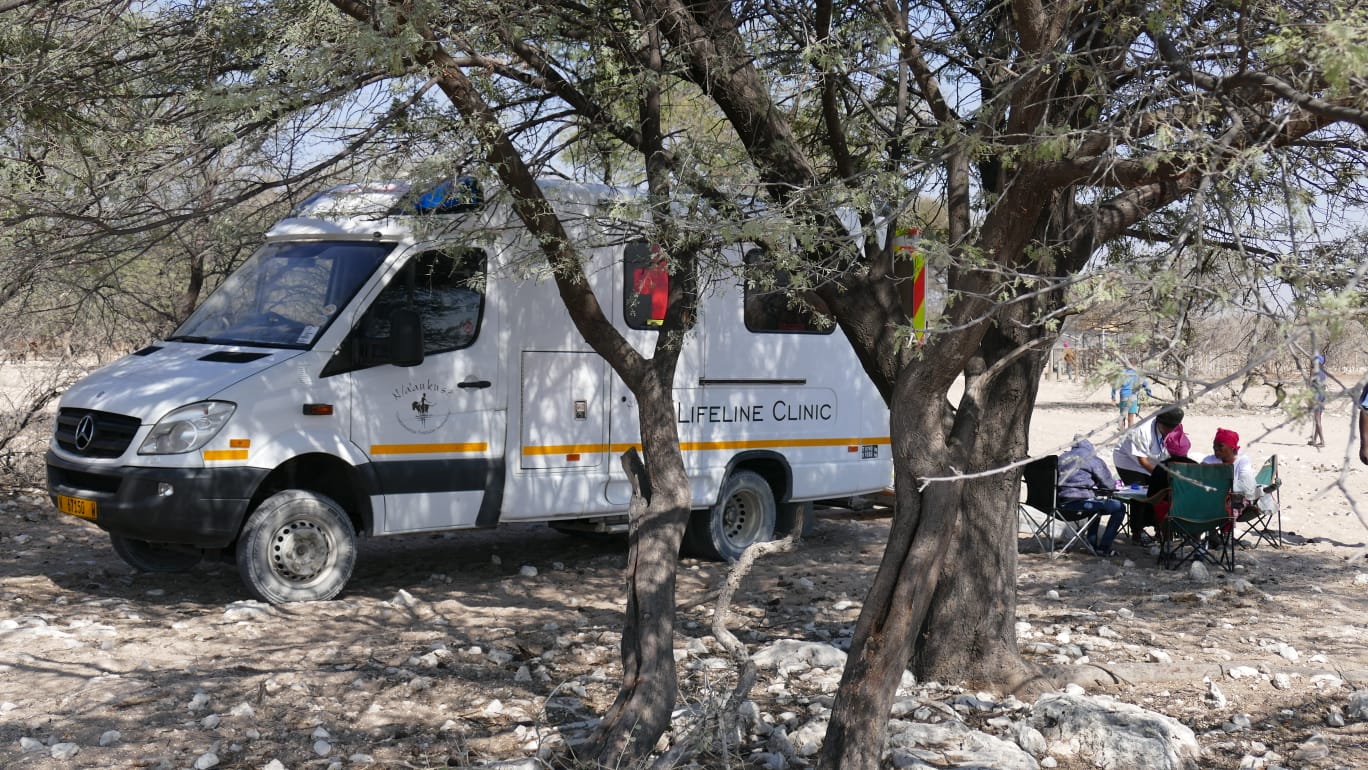Provide an essential pair of
hands at the Lifeline Clinic
Quite literally the lifeline for thousands of San Bushman
-
Duration
2-12 weeks -
Minimum age
18+ -
Start dates
Every Saturday -
From
£860
-
Duration
2-12 weeks -
Minimum age
18+ -
Start dates
Every Saturday -
From
£860
Namibia Lifeline Clinic
Quicklinks
Provide an essential pair of hands at the Lifeline Clinic in Epukrio where you will contribute to the medical welfare of the San Busman community - one of the oldest communities in the world.
The Lifeline Clinic provides free primary health care services to more than 3,500 patients every year – with over 40% being children aged under 5. The clinic (along with the medical volunteers) are quite literally the lifeline for thousands of people within the local area.
Working alongside the local doctors and nurses you will learn about the common diseases affecting the local population and how to treat them. During your time in Namibia, you will come across diseases such as Tuberculous and HIV as well as see a lot of patients with aches and pains and everyday problems. You will find that many children in the area die from highly preventable illnesses and diseases including fungal infections, intestinal worms, diarrhoea, dehydration, malnutrition and mouth infections - something our local team are trying their best to combat.
Suitability
Background to the lifeline clinic
The San community are considered to be one of the oldest tribes in the world with it thought that they descended from the first inhabitants of what is now known as Botswana and South Africa. Unfortunately, many San Bushmen are being forced from their original lands due to increased cattle grazing and the overall expansion of the country, leaving them unable to survive in their traditional lifestyle and living in extreme poverty.
The San live in remote areas around Namibia and the surrounding countries and have considerable difficulty accessing healthcare. The region of Omaheke in Namibia covers an area of 85000km2 and before the construction of the lifeline clinic, only had one hospital and eleven nurse-led state clinics in this region.
Recent research at the lifeline clinic has shown that the San community are 15 times more likely to contract Tuberculous than other tribes in the Omaheke region. As healthcare access is poor, more often than not diagnosis is delayed and many individuals interrupt treatment and later die from the disease. As well as this, HIV and alcoholism are also prevalent within the community, resulting in many more deaths.
During your time in Namibia you will also see a lot of patients with aches and pains and everyday problems. Common diseases amongst children include fungal infections, intestinal worms, diarrhoea, dehydration, malnutrition and mouth infections. By themselves, these infections and illnesses may not be particularly severe. However, many San people go untreated leading to complications and in severe cases, even death.
Working alongside the local doctors and nurses, you will learn about the common diseases affecting the local population and how to treat them. You will deal closely with patients from the local San community, learn more about their way of life and give care to patients living in extreme poverty at the clinic’s remote location.
Where will I be volunteering?
The Lifeline Clinic is based in the town of Epukiro and provides free primary health care services to more than 3,500 patients every year. The clinic was established in 2003 following the tragic death of a San baby, initially with regular outreach sessions and then with a permanent clinic from 2006. The Lifeline Clinic is dedicated to the health and welfare of the San Bushman community providing free medical care - the clinic is quite literally a lifeline for thousands of San Bushman.
The clinic consists of a clinic manager, one nurse, one receptionist and four translators. Medical volunteers like yourself are the lifeblood of the clinic that not only provide an essential pair of extra hands, but also vital funds to keep the operation going. The Lifeline clinic receives no government funding and all the money raised through the volunteering programme goes directly back into the project which provides employment, healthcare, education and accommodation to the local Bushman community.
Currently, more than 40% of the patients seen and treated are children and more than 90% are from the San community - with the remainder mostly Herero and Damara speaking Namibians. A huge focus of the work at the Lifeline Clinic is to tackle the tuberculosis burden within the San population. As well as examining and treating patients, our local team transport and admit patients in urgent need of medical attention to the nearest hospital in Gobabis, 120km away.
In addition to working at the Lifeline clinic, you may also have the opportunity to carry out regular outreach clinics at local schools, resettlement villages and farms. After receiving more funding, the team are expanding their TB programme and are travelling further from the clinic base to actively seek people with symptoms of TB before they become very sick.
What is my role?
As a medical volunteer you will work alongside the clinic’s doctors and nurse to learn about the common diseases affecting the local population and how to treat them. You will deal closely with patients from the local San community, learn more about their way of life and give care to patients living in extreme poverty at the clinic’s remote location. The teaching will be tailored to your skill level, background and knowledge.
Volunteer activities at the clinic depend on your personal background and experience but there is always something you can get involved with. You will deal closely with patients from the local San community, learn more about their way of life and give care to patients living in extreme poverty at the clinic's remote location. Tasks for volunteers at the clinic include:
- Recording patient observations: blood pressure, heart rate, oxygen saturations, temperature
- Performing urine pregnancy and dipstick tests for patients and recording findings
- Weighing babies and recording growth charts
- Glucose testing and recording
- Basic wound cleaning and dressing
- Helping in the pharmacy: stock control, packing medicines and new orders
- Family planning
- Project data input
- Sorting donated clothing and other items
- General maintenance and cleaning of the clinic
- Playing with the local children who attend the clinic
- Preparing food packages for patients
- Recording patient information and survey responses on outreach trips
The Namibia Lifeline clinic welcomes people from all backgrounds. So if you have just left school and are looking for experience to boost your university application (pre-med), currently a university student organising an elective placement overseas or are a trained professional - this is the perfect programme for you.
Prospective medical students can expect teaching on basic clinical skills, history taking and examinations of patients and will be tailored to your skill level, background and knowledge. Medical students and motivated pre-medical students will be able to conduct consultations under the supervision of the clinic team. Trained professionals will be asked to run consultations with patients and assist during the outreach work. This will provide a great opportunity for trained professionals to have a greater impact on the people who are most in need of help.
Depending on the length of your stay and medical knowledge you may be asked to undertake a research project/assignment. This should be something that you are interested in as well as something that is useful to the clinic and of benefit to our patients. Examples of projects for a medical volunteer include mapping distances patients travel to the clinic and local patterns of disease, rates of TB amongst our patients and compliance with medication, and our patients’ knowledge of HIV transmission and disease.
Volunteers often have special skills that are invaluable to the clinic and we encourage you to use them and suggest new activities that you feel the project will benefit from.
What will a typical day look like?
You will generally be volunteering from 8am to 5pm, Monday to Friday. Most of your time will be spent within the lifeline clinic assisting the local staff and looking after patients. However, in addition to running the clinic, a typical fortnight would include:
- Six TB case finding days (sometimes camping overnight)
- Two trips to our nearest town for supplies and to transfer patients to hospital
- One or two outreach clinics at various locations up to a 3 hour drive away
- An afternoon of community health education with a nutritious meal provided
The weekends are free for you to do as you please with activities or day trips often planned for Saturdays.
Depending on your length of stay with us, you may also get the opportunity to spend some of your time participating in the Wildlife Volunteer project at our sanctuary near Windhoek. This project offers the rare and exciting opportunity to help care for orphaned and injured African wildlife.
Please be flexible as the time spent at the sanctuary and the clinic will depend on resources and timetables of other volunteers and activities. Please advise if you are interested in working at the sanctuary as part of your time with us.
Where will I be staying?
While volunteering at the Lifeline Clinic you will be staying within a modern bungalow along with the resident doctor and nurse. Here you will be able to become good friends with the local team and other volunteers and learn so much about the local way of life. Your arrival and departure base will be at the Wildlife Sanctuary, near Windhoek Airport, so if you wish you can also have the unique opportunity to work with the animals here for a few days. The Lifeline Clinic is approximately a 4 hour drive from the sanctuary and we will arrange all your transfers.
Other things to consider
Level of involvement - Your level of involvement will be dictated by a range of factors including your medical experience, duration of program and willingness to get involved. The local medical staff are accountable for you whilst you’re under their supervision and ultimately, it is completely their decision whether or not you are permitted to get involved in hands-on procedures.
Trained professionals - We welcome trained and qualified professionals to come and assist on our medical programme in Namibia. Once you have confirmed your placement we will be in contact to confirm credentials and work out your placement schedule.
Helping on multiple projects - Whilst in Namibia you will also have the opportunity to assist with our teaching and wildlife programmes. All of our programmes in Namibia are operated by the same dedicated local team.









